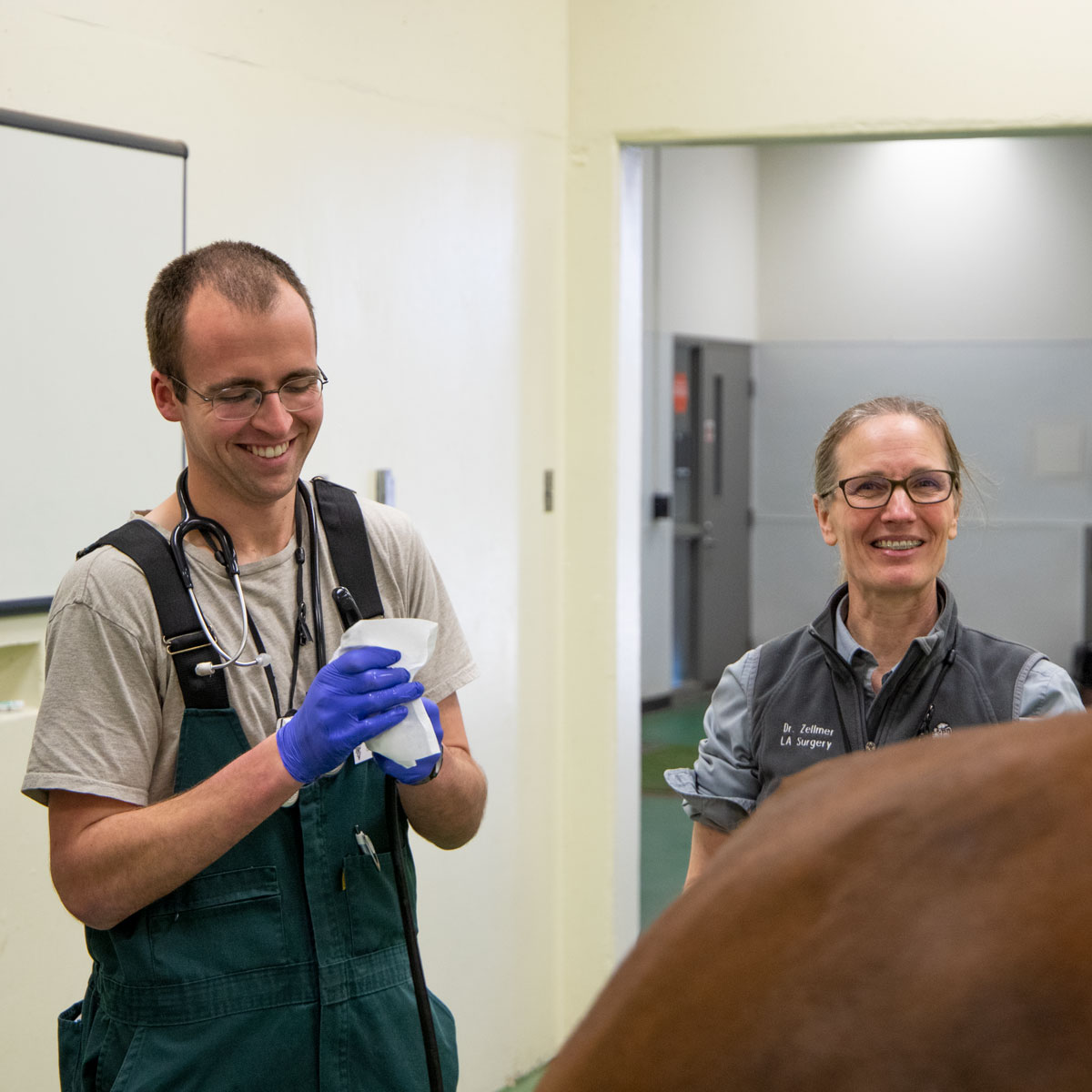March 22, 2023
Words & Photos by Jens Odegaard
For nearly a decade, Dr. Katja Duesterdieck-Zellmer felt alone in being stressed about her job. She’s a board-certified associate professor of large animal surgery at the Carlson College of Veterinary Medicine.
Her job is to perform highly complex procedures on patients who cannot communicate for themselves at the college’s Lois Bates Acheson Veterinary Teaching Hospital. Duesterdieck-Zellmer has to evaluate the animal’s condition with her surgical team and then work with the animal’s owner to determine a course of action that’s best for the animal, but also takes all the owner’s considerations into account.
She then strives to perform a perfect surgery, while leading her surgical team, that will give her patient the best quality of life in the future. As with all surgeries, serious complications are always a risk, and Duesterdieck-Zellmer has to carry that weight.
In addition to performing these surgeries, she is teaching surgery residents (veterinarians completing post-doctoral specialty training), clinical fellows (veterinarians working toward becoming residents) and veterinary students who are seeking their DVMs. On top of that, she also has a research appointment.
Then you have all the regular workplace stressors we all face: interpersonal relationships, competing priorities, budgets, fatigue, you know the drill.
“I always thought it's just me, and I'm not tough enough, and I just have to deal with it,” Duesterdieck-Zellmer said.
(Photo: Dr. Katja Duesterdieck-Zellmer contemplates her approach to a procedure to take a fluid sample with a needle and syringe from a mass in a horse's abdominal cavity near the bladder and uterus. Dr. Robert "Bob" McCarthy holds the syringe and tubing.)


